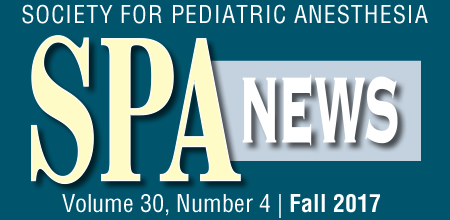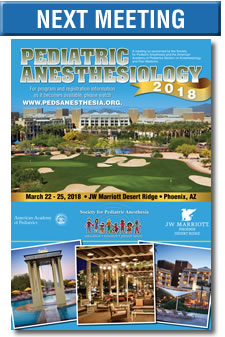Research
Getting Ahead Faster and Farther: Why mentorship is critical to career advancement
Do you ever look at someone’s CV or job title and wonder “That looks cool, but I have no idea how to achieve that?” Career pathways can appear linear. In reality, careers are comprised of several projects of varying productivity that prepares a person to finally discover their path(s). Most of the time, productive paths are the result of influential mentors.
Mentors, along every stage of your career development, can be game changers. A good mentor can help you understand a problem with greater clarity, introduce you to others who can directly advance your career through professional opportunities, and quietly advocate for you to be visible on a national or international level. Mentors can also prevent you from committing errors common to many junior faculty such as overcommitting, saying yes to projects that do not align with long-term interests, and becoming imbalanced between career advancing vs. non-career advancing responsibilities.
The mentor-mentee relationship can be straight forward or nuanced. It typically is dynamic, particularly as one or each of the participants evolves in their interests. Understanding how to initiate and maintain a successful mentor-mentee relationship requires an explicit understanding of roles and obligations.
Instead of trying to figure this out on your own, we would like to make the implicit more explicit. The upcoming SPA Annual Meeting will feature a panel entitled “Getting Ahead Faster and Farther: Why mentorship is critical to career advancement” on Sunday, March 25, 2018. We will explore three dyads of mentors and mentees who represent career pathways in research, education, and administrative leadership. While the metrics of productivity are distinct across these pathways, we will demonstrate that the elements of a successful mentor-mentee relationship are common for all. Panelists include two successful mentors and two mid-career faculty who have been successful mentees.
Mentors
Francis X. McGowan, MD, Director of Research, William J. Greeley Endowed Chair in Pediatric Anesthesiology and Critical Care Research, Department of Anesthesiology and Critical Care Medicine, Children’s Hospital of Philadelphia.
Dr. McGowan currently serves as the director of research at CHOP. He has developed in the mentoring arena in roles ranging from being mentored himself into developing his own research program, to helping develop individual faculty and clinical and laboratory research trainees, and most recently to institution-wide mentoring programs. His own research focus is on infant myocardial injury mechanisms and treatment; he has collaborated on studies on neurotoxicity, hematologic disturbances, airway complications, and various clinical trials. His research career has been guided by a several key mentors in research methods, manuscript and grant preparation (and re-preparation), and approaches to an academic career.
Chandra Ramamoorthy, MBBS Professor, Med Center Line, Anesthesiology, Perioperative and Pain Medicine.
Dr. Ramamoorthy has had a distinguished career in academic, clinical, and administrative leadership. She currently serves as Director of the Pediatric Cardiac Anesthesia, member of the Leadership Council, and co-chairs the Heart Center Peer Review at Lucile Packard Children’s Hospital. On a national level, she has held administrative appointments on the National Registry, Pediatric Perioperative Cardiac Arrest and has filled several organizational roles, including: SPA Education Committee; CCAS Organizing Committee, Vice President and President; Society of Cardiothoracic Vascular Anesthesia Education Committee. Within hospital administration, Dr. Ramamoorthy has served multiple roles, which partially include the Medical Board, Credentials Committee, and OR Governance Committee. Dr. Ramamoorthy has been the principal investigator or co-investigator in several privately funded studies over the last 20 years. Dr. Ramamoorthy has been recognized as Teacher of the Year at Stanford University Medical Center in 2003 and was recognized in Women of Influence by Silicon Valley Business Journal in 2013.
Mentees
Nathalia Jimenez, MD, MPH Associate Professor, Seattle Children’s Hospital, Department of Anesthesiology, University of Washington.
Dr. Jimenez is the PI of a K23 Award, “Disparities in Disability After Traumatic Brain Injury for Hispanic Children,” through NIH’s Children’s Health Institute. Her long-term goal is to test interventions that will reduce barriers to care for Hispanic children with traumatic brain injury. Her research training is under a multi-disciplinary mentoring team including experts in injury outcomes and community based participatory research, qualitative methods, and implementation of interventions in minority communities. She will discuss strengths and weaknesses of working with mentoring teams from multiple disciplines and strategies to maximize mentoring effectiveness in these situations.
Timothy E. Smith, MD Associate Professor, Medical Director of Pediatric Anesthesia, Department of Anesthesiology, Wake Forest University.
Dr. Smith has been the medical director of the pediatric operating rooms since the opening of Brenner Children's Hospital of Wake Forest Baptist Health's pediatric operating rooms. In his role, he has led his division in administration, education, career development, and clinical training. His perspective on mentoring have been influenced by his own experience as a mentee. Dr. Smith is committed to the professional and humanitarian aspects of his mentees and believes that in order to succeed and thrive, people need mentors to create the appropriate environment and guidance. Dr. Smith is eager to discuss the process of identifying your career pathway and aligning it with the skills you may already possess or are trying to develop.
Currently, I am compiling a list of resources (books, websites, conferences, online training, in-person training) on career and professional development opportunities. I will make this list available at the time of the panel. Please email me with any resources, organizations, or conferences you have found meaningful to your own career development. It does not have to strictly pertain to clinical practice!
Finally, David and I are excited to hear from you. Are there mentoring issues that you are struggling with that need to be addressed by our panelists? If so, please submit them to Helen Lee at leehelen@uic.edu.
Sincerely,
Helen H. Lee MD, MPH
Assistant Professor, Department of Anesthesiology
Adjunct Assistant Professor, Department of Pediatric Dentistry
University of Illinois at Chicago
David M. Polaner, MD
Professor of Anesthesiology and Pediatrics
Department of Anesthesiology
Professor of Anesthesiology and Pediatrics
Children’s Hospital Colorado
University of Colorado School of Medicine






